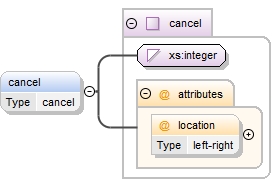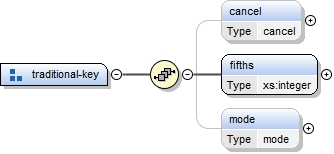| Namespace | No namespace | ||||||||||||
|
Annotations
|
|
||||||||||||
|
Diagram
|
 |
||||||||||||
| Type | cancel | ||||||||||||
|
Properties
|
|
||||||||||||
|
Attributes
|
|
||||||||||||
|
Source
|
|
||||||||||||
| Schema location | file:/C:/Users/mihai/Desktop/MusicXML-Schema/musicxml.xsd |


